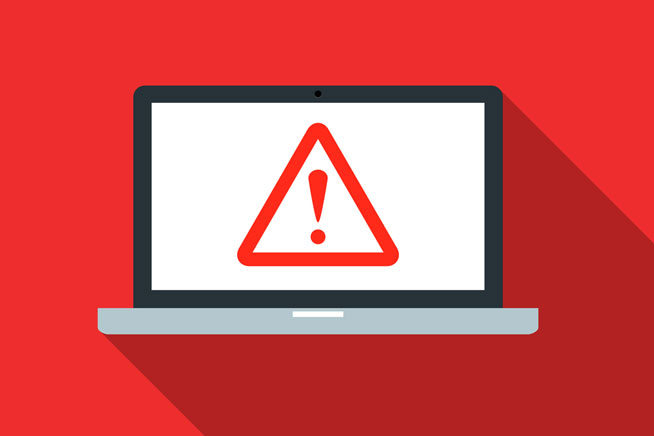The Tax Blog for Smart Canadians
Tips and tricks for Canadian tax filers at every stage of life
From UFile's tax expert Gerry Vittoratos.
Falling for a CRA scam, and how to protect yourself

Can this be legitimate? How can you avoid falling for a scam?
How the scam works
The scammers might contact you in one of four ways: by phone, by email,
by mail or by text message. They typically use two scenarios to scam
you: they either claim that you owe the government money and criminal
charges could be filed against you (phone scam), or they claim that the
CRA owes you a refund and you should collect it (other three methods).
In the phone scam, they employ pressure tactics to get you to pay a fictitious amount owing to the CRA. They will threaten you with criminal prosecution if you don’t pay.
With the other contact methods, the scammers try to hook you with a new refund that the CRA allegedly owes you. They will try to get you to give them personal information such as your social insurance number, bank account and credit card information. The scammers will usually direct you to an online refund form that looks a lot like a page from the CRA’s official site.
How to recognize a scam
The CRA has published a guide outlining what you can expect when they do contact you. The tables below summarize this guide by contact method.
By phone | The CRA may | The CRA will never |
verify your identity by asking for personal information such as your full name, date of birth, address and account, or social insurance number | ask for information about your passport, health card, or driver’s licence | |
ask for details about your account, in the case of a business enquiry | demand immediate payment by Interac e-transfer, bitcoin, prepaid credit cards or gift cards from retailers such as iTunes, Amazon, or others | |
call you to begin an audit process | use aggressive language or threaten you with arrest or sending the police | |
leave voicemails that are threatening or give personal or financial information |
By email | The CRA may | The CRA will never |
notify you by email when a new message or a document, such as a notice of assessment or reassessment, is available for you to view in secure CRA portals such as My Account, My Business Account, or Represent a Client | give or ask for personal or financial information by email and ask you to click on a link | |
email you a link to a CRA webpage, form, or publication that you asked for during a telephone call or a meeting with an agent (this is the only case where the CRA will send an email containing links) | email you a link asking you to fill in an online form with personal or financial details | |
send you an email with a link to your refund | ||
demand immediate payment by Interac e-transfer, bitcoin, prepaid credit cards or gift cards from retailers such as iTunes, Amazon, or others | ||
threaten you with arrest or a prison sentence |
By mail | The CRA may | The CRA will never |
ask for financial information such as the name of your bank and its location | set up a meeting with you in a public place to take a payment | |
send you a notice of assessment or reassessment | demand immediate payment by Interac e-transfer, bitcoin, prepaid credit cards or gift cards from retailers such as iTunes, Amazon, or others | |
ask you to pay an amount you owe through any of the CRA’s payment options | threaten you with arrest or a prison sentence | |
take legal action to recover the money you owe if you refuse to pay your debt | ||
write to you to begin an audit process |
By text message/instant messaging | The CRA never uses text messages or instant messaging such as Facebook Messenger or WhatsApp to communicate with taxpayers under any circumstance. |
The tables above provide all the information needed to determine whether or not the person contacting you is a scammer.
What to do if you were scammed
The first thing to do is to call your local police. After all, this is financial fraud and it must be reported to them.
If your social insurance number (SIN) has been stolen, contact Service Canada as well.
If your CRA ID and password have been compromised (see online payment form above), contact the CRA to reset your online services portal with My Account.
Some home and renters insurance policies cover certain costs related to identity theft resulting from such scams. Check your policy or call your insurance company to find out if you are covered.
Want to learn more? Connect with us on Facebook and Twitter for news and updates on tax return and UFile online tax software. Visit Let's Talk Tax to get accurate answers to all your questions about your tax return.
 Presented by UFile's tax expert
Presented by UFile's tax expert
Gerry Vittoratos
MTax
Categories
- Managing finances (33)
- Netfile (1)
- Saving taxes (54)
Last Blog posts
-
Separations
Apr 10, 2025
-
Employee vs self-employed
Apr 1, 2025
-
Five useful tax return credits
Mar 16, 2025
-
Tax Update 2024
Feb 11, 2025
-
Changes to rental income for short-term rentals
Jan 29, 2025
-
New Tax Rules for Capital Gains: What You Need to Know
Jan 16, 2025
-
CPP additional contributions
May 13, 2024
-
Death and taxes
May 1, 2024
-
Top family credits and benefits
Mar 25, 2024
-
Comparing the RRSP and the TFSA with the FHSA
Feb 21, 2024
More questions? We have answers.
Now with FREE TELEPHONE SUPPORT.
(Long distance charges may apply.)

Privacy Statement Contact Us
© 2025 Thomson Reuters/Tax & Accounting. All rights reserved.


